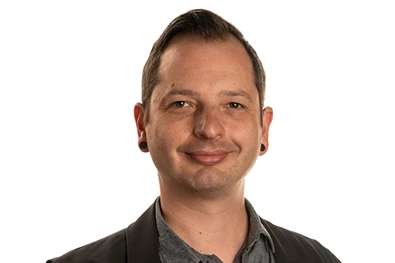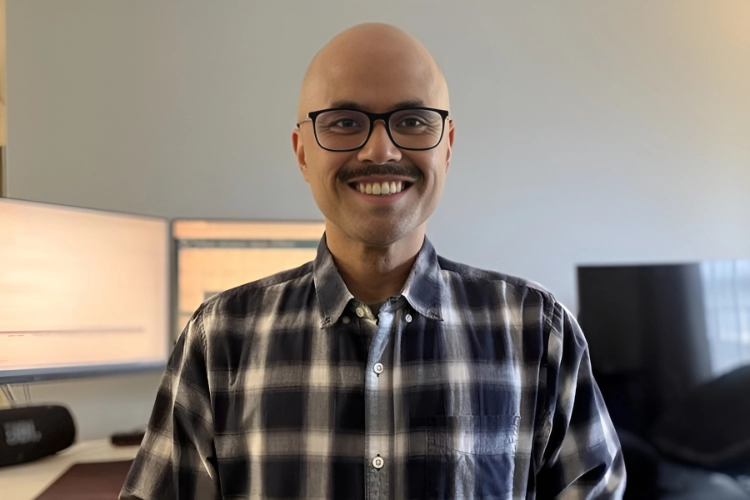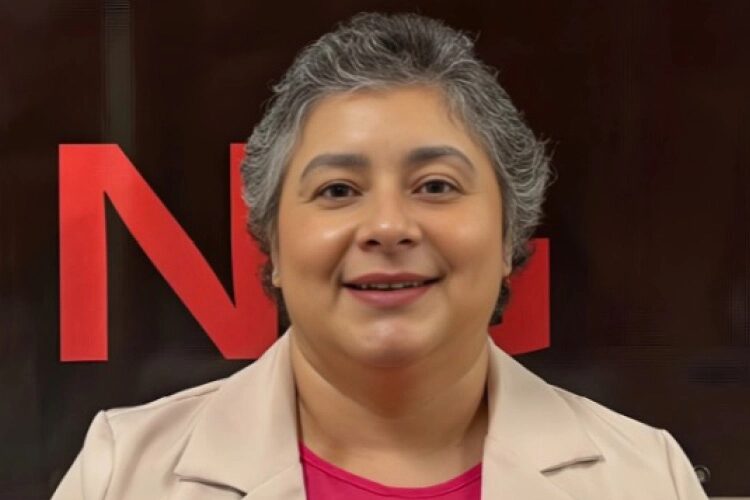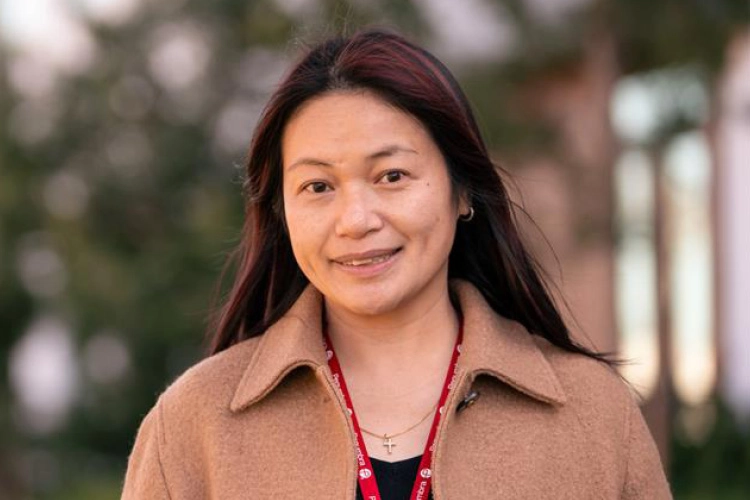
Mars Jokela | Staff Game Designer
Q. What is your current role at Penumbra?
I work in the Immersive Healthcare group on the REAL System™. Our team develops the virtual reality (VR) spaces and activities that patients will experience while they are using the system, and I help develop some of the common underlying technology that stitches the different experiences together to work across our system.
Q. What drew you to Penumbra?
I’m a game designer hailing from the traditional games-for-entertainment space. I’ve worked on a bit of everything; hardcore shooters, casual console titles, couch co-op, mobile, free-to-play, licenses and original IP, text-based and location-based games; all often on emerging platforms like wearables and VR.
As much fun as all those projects have been, and as much joy as I’ve seen them bring to people, none of them really served a purpose toward improving someone’s life beyond the short-term benefits of entertainment. Here with the REAL System, I believe we can bring joy to folks who need it most, after a traumatic event or at a profoundly low point in their lives. VR is a transformative and transportive technology that has so much potential beyond pure gaming, and I believe we are realizing that dream with the REAL System.
Q. What aspects of your job do you enjoy most?
I get to work with a whole team of incredibly talented people. Making games and VR experiences requires many skills: art, engineering, audio, UI, production, and an understanding of the user experience. While I understand those first few, I’m not the best at any of them. I get to work with folks who are the best, working their art and craft to do all of those jobs exceedingly well. I think of designers as sitting “between” the disciplines, bringing them together.
I also think of design as being an advocate for the user, understanding their needs and focusing the team’s efforts on serving them precisely and effectively. In games that is the player playing your game; here with the REAL System, I think of two users: our healthcare providers and their patients.
We have therapists and institutions that purchase REAL Systems for use in their practice. They have sought out a product that makes their patient sessions more efficient and effective, with a goal of improving patient outcomes.
And we have patients who will experience VR – usually for the first time – during their therapy. They want a rich, compelling, and memorable experience that transforms physical and occupational therapy from a chore into an experience that they will want to come back to over and over.
They’re very different in their needs, and both must be understood by us as designers and developers to create an effective and harmonious experience for each. I treasure getting to understand our users. And then getting to work with my talented teammates, building useful things and solving problems through rich experiences.
Q. If you did not pursue your current career, what do you see yourself doing professionally?
- Theme park or mini-golf course design
- Custom homes and architecture
- Appliance, tool, toy, or equipment design
The common thread for me would be in designing functional and usable things with fun and joy mixed in wherever possible, and plenty of technical problem solving to address in the process.
Q. What is the most important thing you have learned in the last five years?
The pandemic certainly transformed how we work. For our team, for the better. I’ve talked about how important close collaboration is for game-making, so obviously the shelter-in-place orders were a huge disruption at first. Then, it made us quickly reevaluate how we work together and collaborate when we can’t be in the same place.
Fortunately, our team develops software, so we can be distributed and work online without needing to be physically in the same space. What we had to learn first were the habits of frequent, structured communication so folks don’t fall out of the loop, and then the tools that can elevate our efficiency when working in smaller groups.
For instance, screen sharing and pair-programming with two screens and keyboards is vastly more efficient than huddling together over a single desk. Brainstorming is more productive when everyone can add to a virtual whiteboard at the same time, rather than one person holding a marker. Importantly, everyone’s ideas are heard and nobody gets drowned out or is too shy to speak up.
There are of course aspects of working in the same place that can’t be replaced and that I miss, but I wouldn’t trade these lessons for anything at this point. In our team, at least, we work better and produce better work now than ever.
Q. What would people be surprised to learn about you?
I’ve never watched (insert your favorite classic movie that obviously everyone is supposed to have seen at some point). Come ask me about whatever film you’re thinking of, and I’ll tell you an answer that surprises you.




